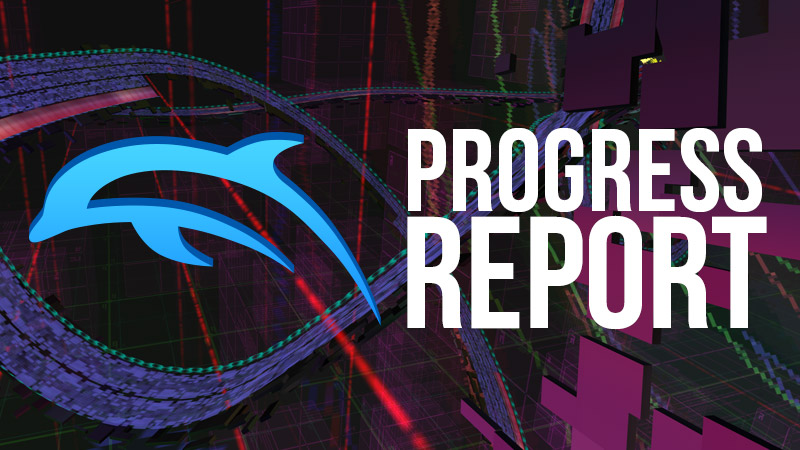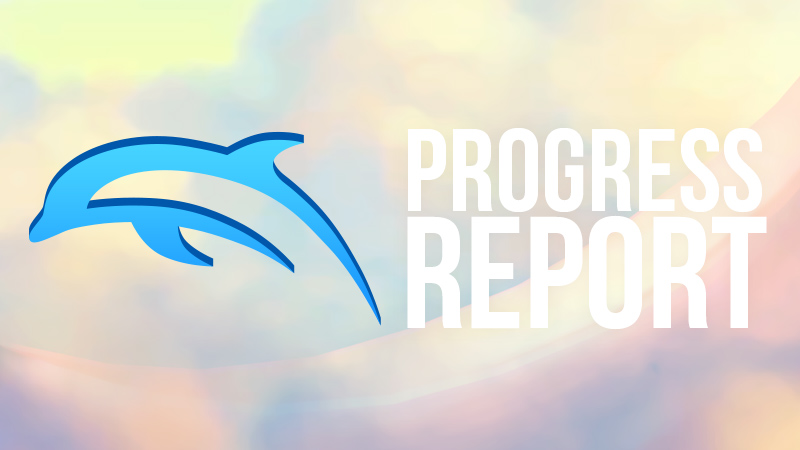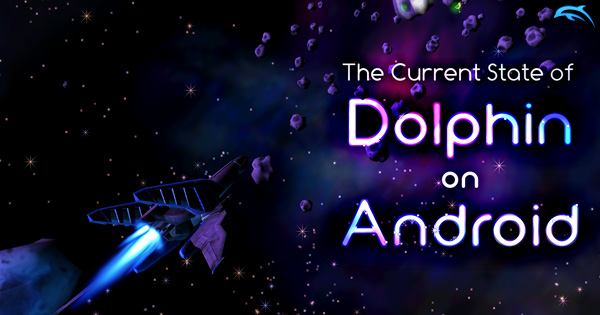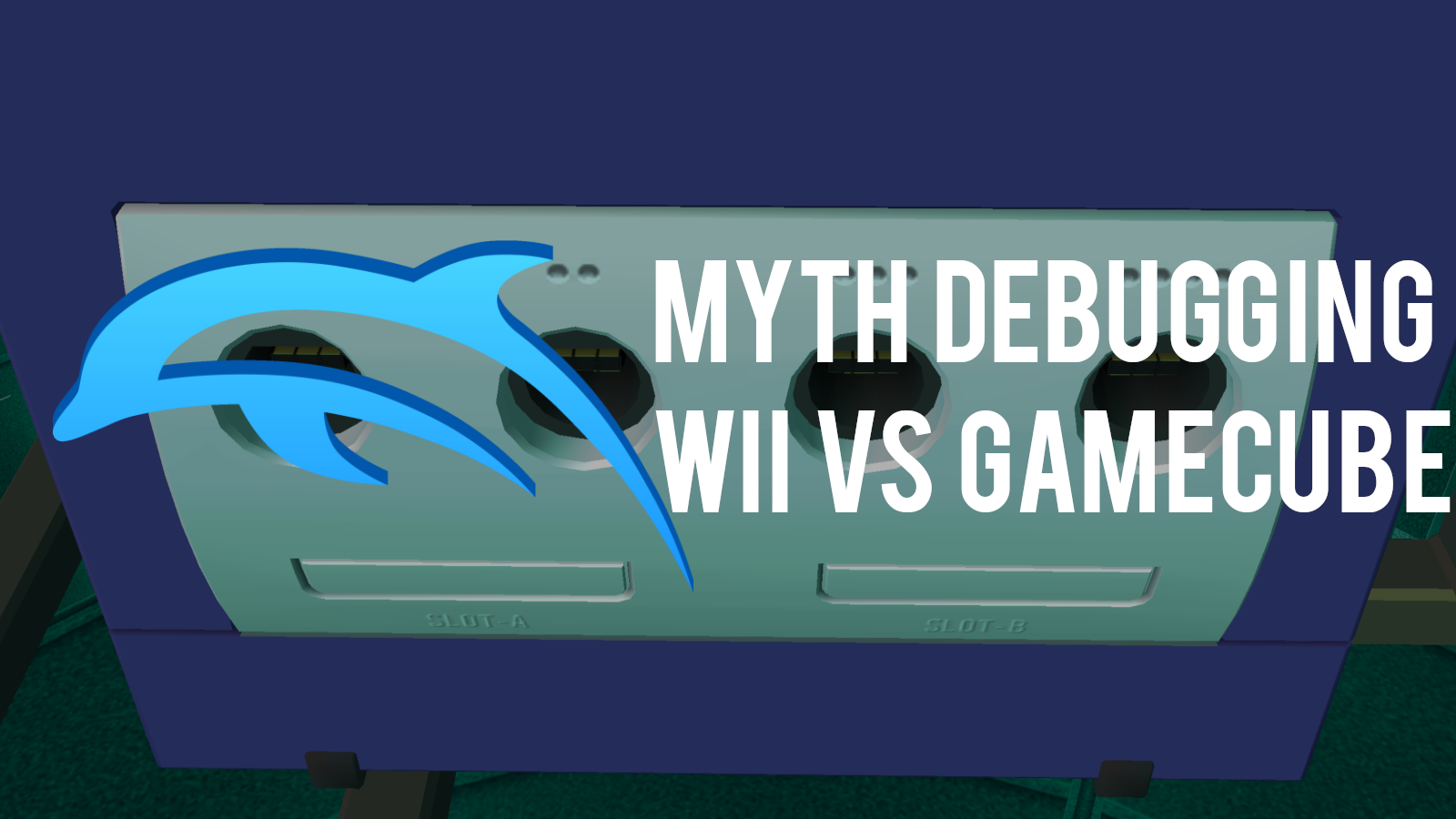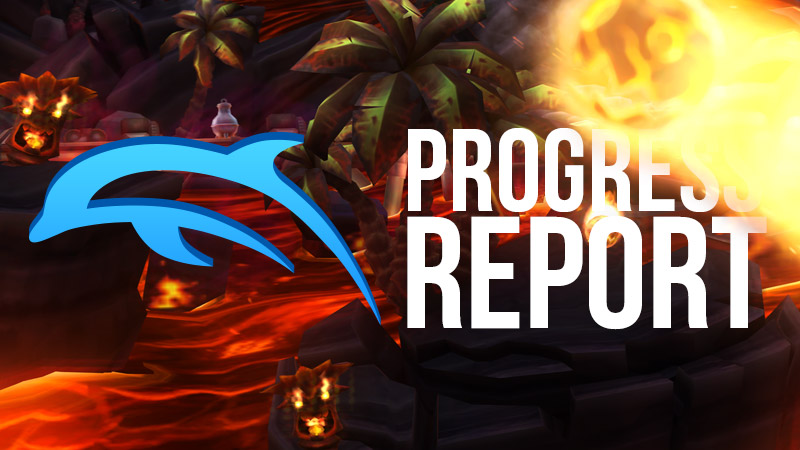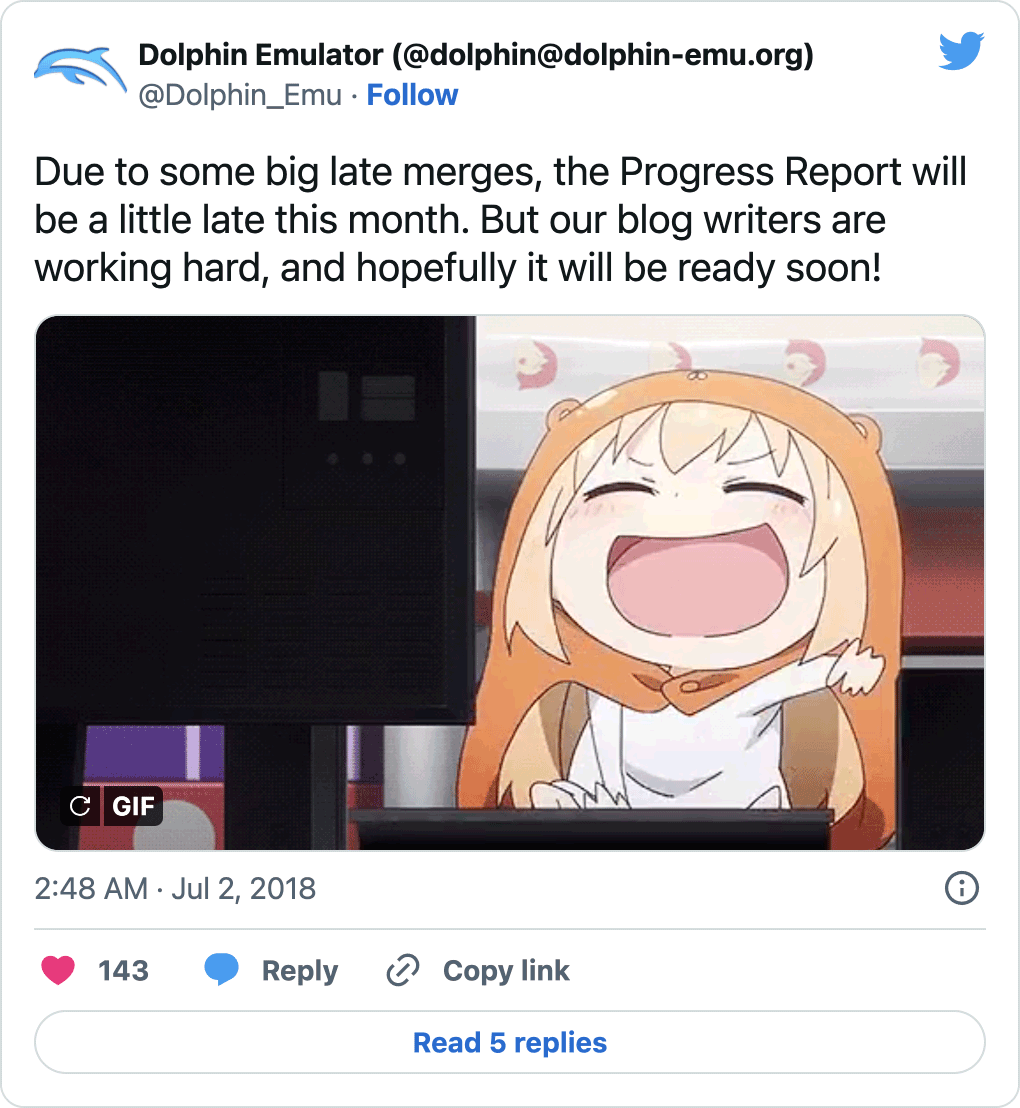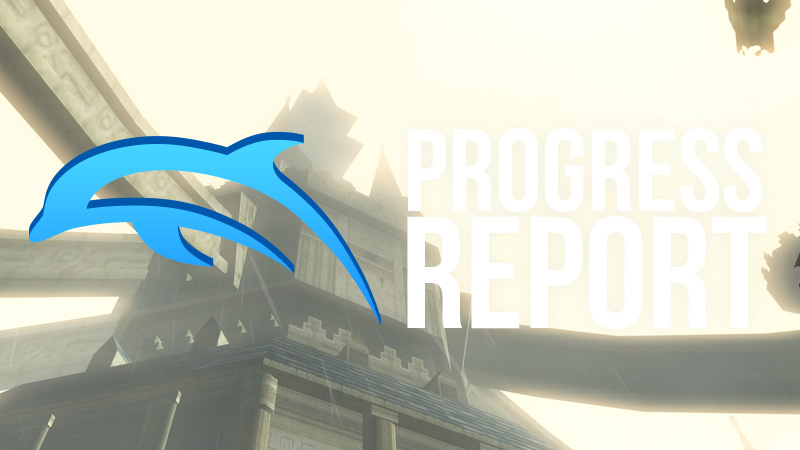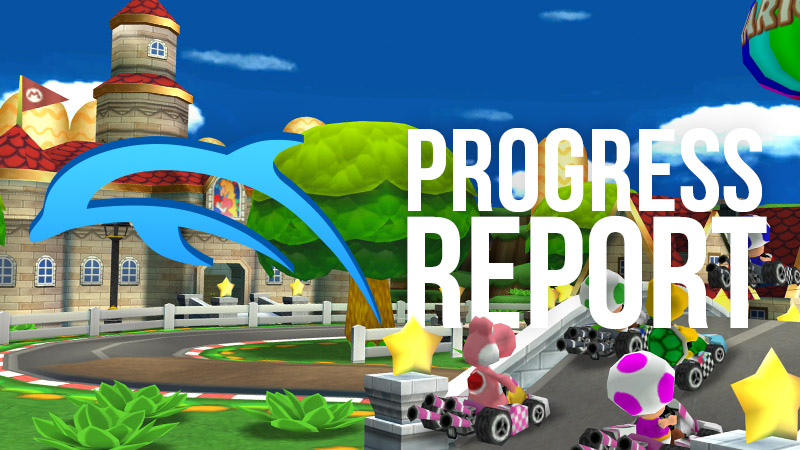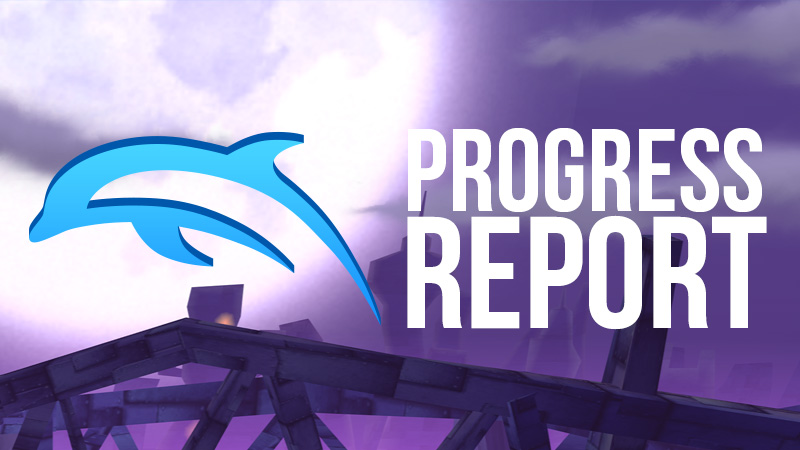Since the Dolphin 5.0 release, Dolphin has had opt-in usage statistics reporting to help us determine what hardware and builds users are using. Recently, this feature was also added to Dolphin Android, letting us see that around 10% of our users on development builds are using the Android version of Dolphin. Obviously, Dolphin on Android isn't going to be a perfect experience for quite some time, but in the meantime we will continue to add features and try to make the Android experience as clean as possible, even if the …
Continue reading
You can continue the discussion in the forum thread of this article.
One of the most interesting challenges of developing an emulator is that both the target hardware and most of the target software start out as black boxes. As often mentioned within emulation circles, the first step to developing an emulator for a console is getting unsigned code running on real hardware. While running unsigned code on the GameCube can be a bit of a pain, requiring custom hardware or a mixture of the broadband adapter and certain games, the Wii has one of the most robust homebrew environments of any console. …
Continue reading
You can continue the discussion in the forum thread of this article.
Dolphin on Android has had a bit of a checkered history since its inception. Users loved the idea of being able to take their favorite GameCube and Wii games on the go, but expectations and reality have never quite aligned. When Dolphin was first uploaded to the Play Store, developers tried to make it absolutely clear games wouldn't be playable, even going as far as calling it "Dolphin Emulator Alpha". Unfortunately, despite many warnings, many people got their hopes up the moment they saw Dolphin was on the appstore and …
Continue reading
You can continue the discussion in the forum thread of this article.
On July 13th, 2008, Dolphin went open source, now just over ten years ago. While it could be easy to drift off into how much things have changed... there's one particular feature that has never quite lived up to the hype despite debuting that very same year - netplay.
As surprising as it may sound Dolphin Netplay has been around since the emulator went open source. For roughly a decade, users have tried their hand at taming the beast of synchronizing multiple instances of a GameCube and Wii despite their …
Continue reading
You can continue the discussion in the forum thread of this article.
Users of Dolphin may have noticed that things look a little bit different in the GUI. That's right, mid-April DolphinQt was unleashed to the masses as the default GUI! It hasn't been without some expected headaches and growing pains, but, overall most of the features are working and the transition is going along as smoothly as we could have hoped. For those having problems, the DolphinWx.exe is still included and will be updated with all the core changes.
Considering that we spent a whole monthly article on Qt, let's get …
Continue reading
You can continue the discussion in the forum thread of this article.
Chapter 1: The Will of the Old Gods
Within the Kingdom of Dolphin, a legend has been passed from generation to generation. While many of the facts have long turned to myth, fragments of this tale are echoed to this day.
This tale began way back in the ancient times known as "2003" when the Old Gods sought to create a wondrous tool that would allow denizens of the PC realm to peer into that of the GameCube dimension. Behind …
Continue reading
You can continue the discussion in the forum thread of this article.
February came and went quietly, especially on the blog. While we do prefer to run a Progress Report every month, we were put into a bit of a bind. February saw a lot of interesting changes - but most of them were setting up for changes that weren't quite ready to be merged yet. Rather than rushing things or writing a Progress Report about things that would be coming soon, we decided to wait.
Well this Progress Report is no April Fools' joke - a lot of big changes landed! While …
Continue reading
You can continue the discussion in the forum thread of this article.
While a lot of our focus goes into the core emulation experience, we also recognize how important it is for users to be able to use the emulator. Dolphin now has several different User Interfaces (UIs) that are used across several platforms. A UI serves many purposes at the same time: from giving users access to the most important options, to relaying information to the users as they're using the program, and sometimes even communicating to developers what the program is doing at a given time.
This month, UI takes center …
Continue reading
You can continue the discussion in the forum thread of this article.

